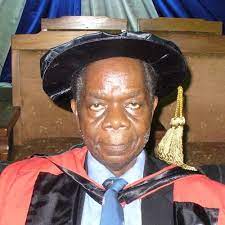Nigeria held a presidential election on 25 February, 2023.
Eighteen political parties fielded candidates and voting in the election took place in 36 states and the Federal Capital Territory, Abuja.
Abuja is the capital and was created on 3 February, 1976. It is not a state and is not listed as one of the 36 states in the Constitution.
It is administered by a minister appointed by the President, not by an elected state governor, and the National Assembly makes its laws, not a State House of Assembly. Yet, the Federal Capital Territory minister, for instance, can allocate and issue a Certificate of Occupancy for land in Abuja like a governor does with land in his state under the Land Use Act. The status of the Federal Capital Territory, Abuja, is sometimes confusing.
Bola Tinubu of the APC was declared winner of the election by the Independent National Electoral Commission, INEC. Atiku Abubakar of the PDP came second and Peter Obi of LP came third. The other political parties did not make a very strong showing.
Both Atiku Abubakar and Peter Obi challenged the result on a number of grounds in the Presidential Election Petition Court: Did Tinubu really win and did he satisfy the requirements of the Constitution?
The Constitution, Section 134 (2) states: “A candidate for an election to the office of the President shall be deemed to have been elected where, there being more than two candidates for the election, first, he has the highest number of votes cast; and secondly he has not less than one quarter of the votes cast at the election in each of at least two-thirds of all the states in the Federation and the Federal Capital Territory, Abuja.”
So, can a candidate get the required spread without votes from Abuja?
Tinubu had the highest number of votes and at least 25% (one quarter) of the votes cast in 28 states. Two-thirds of 36 states is 24 states, so he got the required number of states.
But, out of the accredited 478,923 voters, he got 90,902 votes or 19% in Abuja.
Now, does the Constitution require him to score at least 25% of the votes in Abuja in addition to any 24 states to be declared winner, or just 25% of the votes in 25 states, even without Abuja?
The word, “and” that was used in the Constitution to join two-thirds of the states with Abuja is a conjunction.
A conjunction joins words, phrases, clauses or sentences and shows the relationship between what are joined by the writer or speaker.
There are three types of conjunction:
Coordinating conjunction connects words or clauses that are equal or serve the same purpose in a sentence example, “and,” “or.”
Subordinating conjunction joins a subordinate clause to a main clause to show a relationship example, “although.”
Paired conjunction consists of two words or phrases that make a point or show alternatives example, ” both, and;” “not only, but also.”
The “and” used in the Constitution as a single word is a Coordinating conjunction. The writers of the Constitution want to regard Abuja as equivalent to a state. Is not the meaning in Section 134 (2) of the Constitution, therefore, that a candidate scores 25% of votes cast in any 25 states with Abuja taken as a state?
If the states or Abuja is to have a subordinate position, a Subordinating conjunction would have been used.
If Abuja must be won, instead of a Coordinating conjunction, a Paired conjunction could also be used. The Constitution would have read, “Not only in two-thirds of the states, but also in Abuja.” A Paired conjunction as, “not only, but also,” or “both, and” would have been used by the Constitution writers.
In the argument that ensued, some one has added an anecdote to make “and” a Subordinating conjunction. He says: “I want to see 24 of your 36 brothers and you tomorrow. If 25 of your brothers come without you, has my order been obeyed?”
This does not appear to be a proper analogy because the Federal Capital Territory, Abuja, is being promoted above each of the 36 states with a Coordinating conjunction instead of a Subordinating conjunction.
It is therefore, not a good use of the Coordinating conjunction “and” which makes Abuja equal to a state in status as in Section 134 (2) of the Constitution. A Coordinating conjunction makes the words or phrases that it is joining to serve the same purpose. Since they are coming together and all of them are equivalent brothers, the demand would have been for just 25 of the 36 brothers in that example.
Conversely, if one brother is more important, the demand would have been for both of the 24 brothers and the important one. The Paired conjunction “both, and” or “not only, but also” would have been used. Alternatively, the preposition, “with” can be used: “I want to see 24 of your 36 brothers with you tomorrow.”
The same argument goes when an institution requires at least a credit in five subjects, including English language, for admission. It would not be proper to say that it requires at least a credit in four subjects and English language for admission.
Does it require a credit in four subjects, one of which must be English language, or a credit in five subjects, one of which must be English language? There appears to be a squinting modifier problem (misplaced modifier) with that sentence.
The institution may correctly, say that It requires at least a credit in five subjects, one of which must be English language, for admission. This removes the confusion in that sentence. It is also clearer because a Coordinating conjunction makes both requirements equivalent and is out of place when one requirement is more important.
This issue has kept lawyers on both sides of the argument busy. The majority seem to be on the side of winning Abuja is not mandatory. One suggested that if, “in” or “further in” was added just before Abuja in that clause in the Constitution, it would have made winning Abuja mandatory by correcting the error of parallelism (parallel structure), if that was the intention in the sentence.
The Supreme Court in Buhari v INEC (2008) 19 NWLR ( PT 1120) 246 ruled that the states “and” Abuja in Section 134 (2) of the Constitution should be interpreted conjunctively and went on to determine whether Shehu Yar’Adua was qualified to contest election; whether the Presidential election was in substantial compliance with the law; and whether Yar’Adua validly won the highest number of votes. He already had the required spread in two-thirds of the states and Abuja.
On 12 December, 2008, the Supreme Court decided in that case that Yar’Adua was validly elected President.
The Supreme Court did not rule that winning 25% of the votes in FCT, Abuja, is mandatory for winning Presidential election, although a few people interpret it like that.
Section 299 (1) of the Constitution seems to settle the matter: “The provisions of the Constitution shall apply to Federal Capital Territory as it was a state.”
In Baba-Panya V President, FRN (2018) 15 NWLR (PT. 1643) 395 the Court of Appeal in interpretation of this section ruled that, “Federal Capital Territory is in law a state.”
As explained by a jurist, a court ruling is for a particular case and can be cited as authority only for that matter. If I tell my friends to take my servant as my child, for instance, that does not make my servant my biological child.
Section 48 of the Constitution states: “The Senate shall consist of three senators from each state and one from the Federal Capital Territory, Abuja.” It does not equate Abuja to a state in electing senators. The Constitution however, recognises Abuja as the seat of power.
The Constitution tends to treat Abuja mostly as a state and sometimes as Federal Capital Territory and says so.
Having said that, the status of the Federal Capital Territory, Abuja, can be equivalent to a state, but cannot be elevated beyond, or circumscribed below, that of a state without the Constitution explicitly saying so.
The Court of Appeal, sitting as the Presidential Election Petition Court, on 6 September, 2023, ruled that getting 25% of votes in FCT, Abuja, is not mandatory for winning Presidential election in Nigeria once the other criteria are met.
On 26 October, 2023, the Supreme Court upheld the judgement of the Presidential Election Petition Court. It also ruled that Bola Tinubu was validly elected President of Nigeria.
As it stands, while votes in Abuja are important and cannot be ignored, as those in any state, it will be both a misinterpretation and contradiction to say that winning 25% of the votes in the Federal Capital Territory is mandatory in Section 134 (2) of the Constitution for a candidate to become President of Nigeria.

What is two-thirds of 19 states?
In 1979, there was a presidential election in Nigeria.
The law required the winner to score a simple majority and at least 25% of the votes in two-thirds of the states.
There were 19 states ( 2/3 of 19 = 12.66 or 12 2/3).
Alhaji Shehu Shagari of the NPN had a simple majority of votes and 25% of the votes in 12 states.
The 13th state in contention was Kano State: He scored 243,423 votes, or 19.94% (less than 25 per cent) of a total of 1,220,763 votes cast in the state.
The electoral body declared him the winner and this sparked a constitutional crisis: What is two-thirds of 19 states?
The other candidates: Obafemi Awolowo – UPN, Nnamdi Azikiwe – NPP, Aminu Kano – PRP, Waziri Ibrahim – GNPP, argued that the law was not fulfilled until they go to the electoral college for a run-off.
A Mathematician, Emeritus Professor Chike Obi, said the problem with the electoral body is a problem of Arithmetic: There is no such thing as two-thirds of a state (or a person).
The fraction must be rounded up.
Mathematicians were told it is a matter of Law, not Mathematics, and the case went from Election Tribunal to the Supreme Court.
Nigeria’s Supreme Court, in a case it says is not to be cited, gave it to Shagari, maybe to allow the military hand-over power as planned within the time frame and save the country.
The judgement was on 26 September, 1979 while the legal date to swear-in the new President was October 1, 1979.
Alhaji Shagari was sworn-in as President.
The law-makers amended the law afterwards, rounding up the figures whenever the number of states required for an election to be decided ends in a fraction.
It cannot be rounded down, even if less than half, or else the law is not satisfied.
A case of both grammar and Arithmetic problems for Nigeria.
photo credit: nigeriainfo











